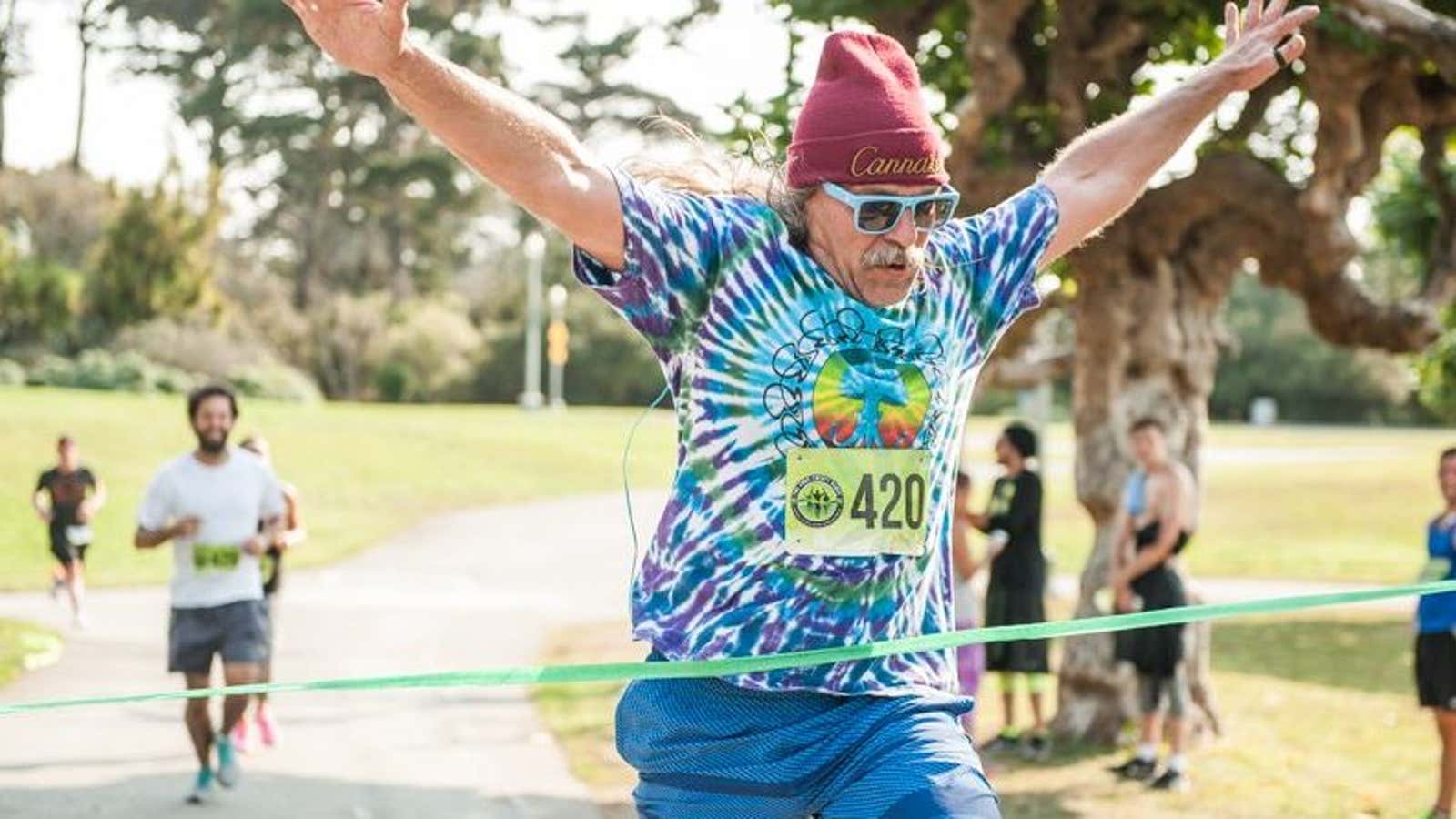Ever since his days of smoking pot and lifting weights in his parent’s garage at 18, Jim McAlpine has imagined a gym that married athleticism with the salutary benefits of cannabis. McAlpine is finally getting his wish. The entrepreneur is teaming up with the Heisman Trophy winner and former NFL running back Ricky Williams to open Power Plant Fitness, a gym in San Francisco, this November.
McAlpine says it’s not a gym meant for lazing about in clouds of high-grade pot smoke (lighting up is allowed in designated areas only). The “fitness first, cannabis second” venture intends to forge a new genre of fitness movements, similar to Soul Cycle or CrossFit. McAlpine hopes to expand into the California cities Los Angeles, San Diego, and Sacramento before opening franchises in pot-friendly states such as Colorado, Oregon, and Washington. Power Plant Fitness is just one of more than a hundred legal pot startups that raked in more than $220 million in investment last year, double the amount in 2014, reports CBInsights. McAlpine declined to disclose how much money he has raised, but he said the gym had been “well-received” by investors.
The gym’s staff will include trained instructors (more like “shamans,” McAlpine says) who’ll administer a “cannabis performance assessment” to every member, examining how cannabis affects each one, then designing personalized workout routines. Doctors will be on hand to issue medical marijuana cards with instant delivery from partnering dispensaries. Clients will be encouraged to eat or vaporize marijuana, rather than smoke it, due to the more harmful effects of smoke, and to “microdose” or ingest small amounts of the drug. (In some cases, customers may be advised not to use marijuana.) Non-intoxicating compounds such as CBD and hemp-derived rubs will also be available.
“It’s more of a body-and-mind overall philosophy,” says McAlpine. “We’ll be doing a lot more mind work than you find at other gyms.”
As a young athlete, McAlpine says, the calm and focus marijuana offered improved his performance and recovery periods. Even today, McAlpine ingests a dose of THC before setting off on the 1.4-mile swim from Alcatraz, through San Francisco Bay’s cold waters. ”It’s a long-term engrained piece of athleticism people have had to keep closeted and hidden,” he says.
Scientific research into cannabis’s benefits for athletes is still sparse, to say the least—and there are plenty of warnings about its risks. But one indication of its potential advantages is the fact that the World Anti-Doping Association banned cannabis in competition because of indications that it helps athletes decrease anxiety and increase airflow to the lungs as a bronchodilator.
The NFL’s Williams, a former New Orleans Saints running back, said he relied on the drug throughout his career, telling CBS Sports that the NFL’s teams “weren’t trying to take care of me.” ”I’d go see the doctor, he’d wiggle my knee around and say here, and give me some anti-inflammatories, some pain pills, and say, ‘Just try to rest.’ That’s it. I think there’s a better way.” Williams violated the league’s drug policy four times, three of them for marijuana, reports ESPN, and he now wants to change how the sports world views the drug. “I was a really good football player, a really good person, my teammates loved me, my coaches loved me, but my career and life were ruined because of a drug test,” he told the the International Business Times. “It doesn’t make sense. They have to take a more humane approach to this.”
McAlpine hopes Power Plant Fitness will help marijuana shed its association with slacker culture, and assume what he sees as is its rightful place in American culture. He has already founded 420 Games, which hosts pot-themed athletic events around the country, including triathlons, obstacle courses, golf tournaments, and a 4.20-mile run in San Francisco. His latest non-profit venture aims to teach kids about cannabis in a curriculum that includes substances such as coffee, alcohol and cigarettes.
“I’ve dreamed about this since I was 18,” said McAlpine. “I feel so lucky to be alive right now, at a time when the walls of prohibition are coming down.”




